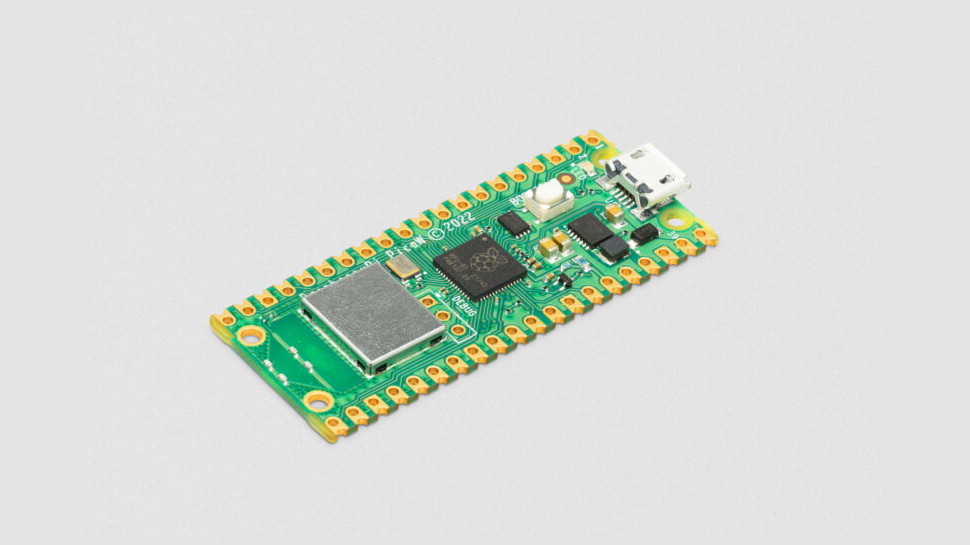Raspberry Pi has launched three new versions of its cheapest board, the Pico, each featuring a different combination of upgrades.
The most exciting addition is the Pico W, a carbon-copy of the original with one important addition: support for wireless internet. The new microcontroller board is 50% more expensive, but still unlikely to break the bank at just $6 per unit.
Raspberry Pi is also launching new Pico H ($5) and Pico WH ($7) models, which add pre-populated headers and the firm’s new 3-pin debug connector to the original Pico and Pico W, respectively.
New Raspberry Pi Pico
Launched in January last year, the Raspberry Pi Pico is billed as the ultimate IoT platform, pitting the company directly against the likes of Arduino. Although the Pico isn’t equipped to run a full-fat operating system like other Pi boards, it can be easily programmed to control sensors, motors and other peripherals.
“Whether you’re looking for a standalone board for deep-embedded development or a companion to your Raspberry Pi computer, or you’re taking your first steps with a microcontroller, this is the board for you,” said James Adams, Raspberry Pi COO, at the time of the release.
Since launch, Raspberry Pi has sold almost two million Pico boards, with the custom RP2040 microcontroller at its heart also making its way into a number of third-party products. But now, the company is launching new models to address an obvious shortcoming.
“Fast cores, large memory, and flexible interfacing make RP2040 a natural building block for IoT applications. But Pico itself has one obvious missing feature for IoT: a method for connecting to the network. Now, this is about to change,” wrote Raspberry Pi CEO Eben Upton in a blog post.
“We’ve worked with our friends at Infineon to add their CYW43439 wireless chip to Pico W. Like all modern Raspberry Pi boards, the radio circuitry is encapsulated in a metal shield can, reducing compliance costs for customers who want to integrate it into their own products.”
Although the CYW43439 also offers support for Bluetooth, Upton said the Pico W will not be Bluetooth-enabled at launch, but may incorporate the feature in future.
Raspberry Pi says the Pico W and Pico H are available to purchase immediately, with the Pico WH set to hit the shelves some time next month.





